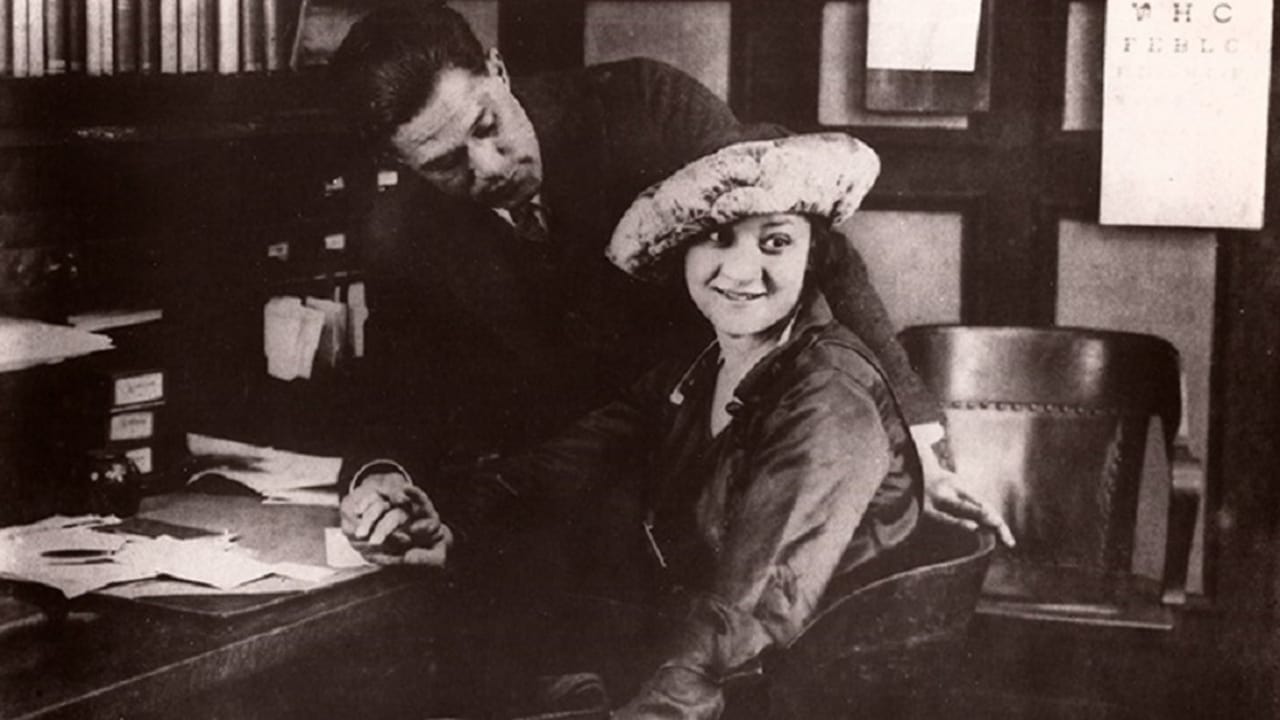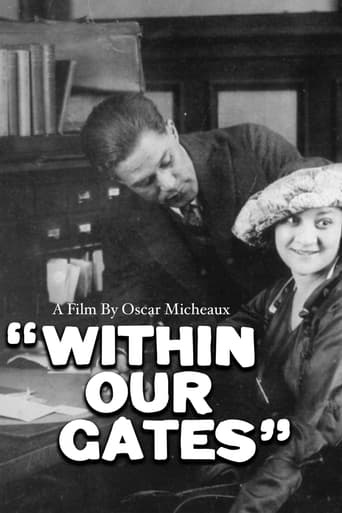

Let's be realistic.
... View MoreIt's no definitive masterpiece but it's damn close.
... View MoreWhen a movie has you begging for it to end not even half way through it's pure crap. We've all seen this movie and this characters millions of times, nothing new in it. Don't waste your time.
... View MoreIt is an exhilarating, distressing, funny and profound film, with one of the more memorable film scores in years,
... View MoreThis movie is a mighty epic and many critics believe it was a response to Griffith's fairytale vision of the South and was trying to show that "primitivism" belonged to the White Southern culture. Just the year previously was the Chicago Race riot where white mobs had killed blacks and burned residential districts leaving thousands homeless. Oscar Micheaux worked with a very limited budget, borrowing costumes and props and having no money to reshoot scenes.Dealing with the value of education and the right to vote, this race movie has some shocking scenes involving a lynch mob - no one watching this would not be moved and sick to their stomachs. The plot is extremely convoluted with characters established then disappearing. Sylvia (Evelyn Peer) is visiting her cousin, Alma, who secretly loves Conrad, the man Sylvia is engaged to. She intercepts a telegram sent to Sylvia to tell of Conrad's surprise arrival and arranges for the girl to be caught in a compromising position with Alma's brother, Larry, a criminal who is wanted by the police. Sylvia returns to the South after being rejected by Conrad and knowing Larry to be a murderer.She then becomes involved in the running of a school for poor black children but soon returns North when funds run out and she promises to do what she can to try and meet the right sort of people. She meets Mrs. Warwick, a wealthy philanthropist who is eager to help Sylvia's people gain knowledge and suffrage but unfortunately the lady seeks advice from Mrs. Stratton, a racist Southern woman who feels that "black people are only good as slaves and education is wasted on them - all they care about is getting to heaven"!! The film then goes off on another tangent showing Preacher Ned bowing and scraping to the white man but full of self loathing and disgust at the way he has to behave. Micheaux is quick to show that while Preacher Ned is an "Uncle Tom" he is not an evil man. The school ends up with a $50,000 donation as Mrs. Warwick is sickened by the other woman's remarks.Back in the South once more Sylvia is visited by Larry who wants her to get rid of some stolen property or he will tell her new friends about her unsavoury past. She runs, rather than become involved in crime, straight to the arms of Dr. Vivian who has always loved her and wants to help her forget her unhappy past (Alma, now repentant, has confessed all to the doctor, which includes a very graphic depiction of a family being lynched).At the time critics feared riots if certain scenes were not deleted from the print and it was banned from cities which had just experienced the race riots.Highly Recommended.
... View MoreThe best word to describe this film is "amateurish". While it does have a central focus, the muddled, confused and confusing plot proceeds in fits and starts. Characters drop in and out of the narrative seemingly at random and sometimes change outlook right in the middle of a scene.Worse still, the film has been edited with a proverbial meat-ax. Odd bits and pieces of irrelevant action are often spliced without rhyme or reason into the movie, further adding to the viewer's difficulties in following the plot.Despite all obstacles, however, individual scenes do succeed. The lynch sequence exerts a terrible power becausewhether by design or accidentit looks like an actual newsreel event.Acting too is mighty variable. Evelyn Preer does good work as the unsettled heroine, Bernice Ladd makes a forceful bigot, and there are two outstanding actors among the ranks of obvious amateurs in the support cast: E.G. Tatum and the uncredited Old Ned.Which brings me to the most amazing aspect of Micheaux' vision. "Within Our Gates" is a cry for justice, but no apologia. In fact it often seems to go out of its way to present a surprisingly warts and all take on African-Americans. The two men just mentioned, for instance, enact self-seeking traitors (and do so brilliantly). The little spiv, Jack Chenault, is a despicable criminal, and even the second female lead seems somewhat unsympathetic (especially in the film's original uncensored version which has unfortunately been lost).
... View MoreI disagree with the first comment. I did not find this movie silly at all. I believe it was up to par with any other silent movie of this same period, and the acting was not atrocious. I think it was a very provocative movie for its time and, whether it was purposefully or not, a great response to DW Griffith's "Birth of a Nation." That movie showed a mulatto man trying to force himself on a White woman, along with numerous other stereotypes of Black people in that movie. "Within Our Gates" showed the true side of what really happened, especially with the lynching, and the main character and her *real* father. I feel privileged to have seen a Black silent film, especially one of such high caliber.
... View MoreI was deeply affected by parts of this story about the plight of negroes as told for negroes by negro director Oscar Micheaux. Ostensibly, it's about a woman who tries to help a poor southern school for negroes by getting financial help to supplement the meager amount the state provides, but it is laced with observations about racial prejudice. One bigoted southern woman living in the north is against the women's suffrage movement for fear that negro women will get the right to vote. And she expresses her negative sentiment about educating negroes: "Thinking will give them a headache." Micheaux gets more points across in the best part of the film, the flashback scene near the end prefaced with a title card "Sylvia's Story." We see how a negro preacher agrees with some condescending whites that the negroes should keep their place, but privately condemns himself for doing so, announcing that "negroes and whites are equal" to himself. We see how injustice reigns with a lynch mob and how the innocent, even an innocent bystander, can easily become victims of racial prejudice. The film is worth seeing for this sequence alone, providing images that caused me to lose some sleep. Micheaux also slips in comments about the negroes' accomplishments in the Spanish-American and Mexican wars and WWI, as if to bolster the low self-image of his negro viewers. The film may be primitive by some standards, but Oscar Micheaux tells a powerful story.The film was intended for negro audiences, but because of some controversial parts (rape and lynching) many exhibitors refused to show it, so very few saw it when it was released. This being the earliest surviving film made by an African American, it was placed on the National Film Registry and lovingly restored from the only surviving copy in Spain (see the alternative version listing for details). The Library of Congress is to be commended for doing such a fine job.
... View More